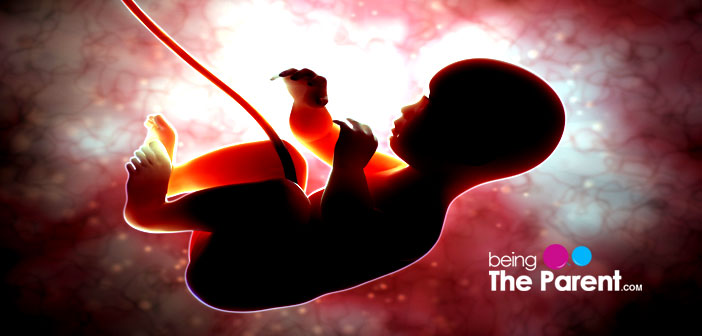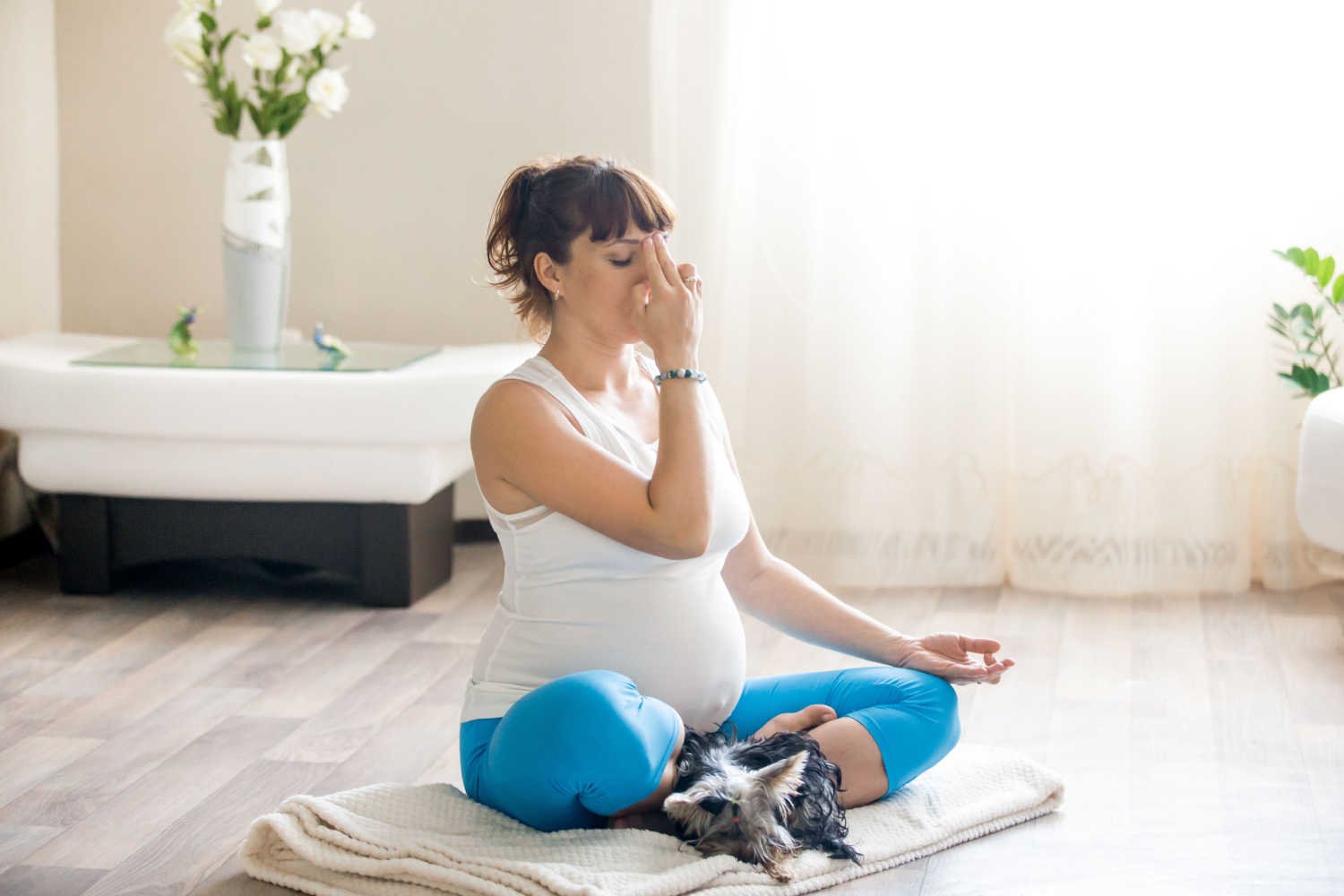
6 Things Your Baby Learns And Develops In The Womb
4 min readWritten by Editorial Team

It is natural to wonder if your little munchkin is upto some learning as well while he is in the womb. Though the baby is stretching and expanding himself in the womb, it is worth noting that he does come with some knowledge of the outside world. Babies do comprehend and learn quite a bit while they are playing around in your uterus, indulging in something called ‘sensory play’. Babies tend to engage their senses with the outside world sometime in the last trimester, and prepare for their arrival in the world. Lets look at some of the things your baby may not be a stranger to when he is born.

6 Things Your Baby Learns And Develops In The Womb
- Sounds: Babies are known to react to sounds and noise in the last trimester of pregnancy. Plus, the baby gets to hear his mother’s flowing blood, the stomach gurgles, the burps while he is still in the uterus. He also gets to hear the noises and sounds that come beyond the belly. To some sounds, the baby’s reaction might be a quick move, a jerk or sudden change in position. Perhaps, it is the mother’s voice that the baby hears most clearly, and that is why a baby is able to recognise his mother’s voice after birth. Infact, in the later stages of pregnancy, the mother’s voice has been found to have a calming effect on the baby by slowing down the heartbeat. Babies also show some likability to songs or music that mothers might have heard during pregnancy, and such songs have been found to have a calming effect on the babies even when they grow up
- Language: When a pregnant woman talks to her baby in the womb, she is setting the first building blocks of language. Webmd.com states that babies can start to absorb languages in the last 10 weeks of pregnancy. A newborn can actually figure out the difference in the language that the mother speaks from other languages, which means all rumblings are not the same for the little one. The babies in the last stage of pregnancy listen to what their mothers are speaking, learn and remember the same. And because a mother’s voice is amplified in her body, the most preferred language will be the mother tongue. Hence, pregnant women are often advised to talk to their bellies, no matter what
- Light and Dark: A baby’s eyes remain shut till about the seventh month of gestation, and who could complain about that! Think about the view from the womb, there couldn’t be much to see either! Once the eyes of the fetus are open and he can see, there is not much light to support the vision, though a flicker now and then would surprise your munchkin. He may move away surprised if a sharp light is pointed at the belly, and thus begins your baby’s first meeting with light. Babies tend to blink their eyes in the womb which serves as a practice for when they are born
- Taste: A fetus develops his taste buds as early as the 7th or 8th week, and research has it that he is able to taste bitter, sweet and sour flavors in the amniotic fluid. The amniotic fluid is as flavorsome as what you eat, and your munchkin uses the sense of taste to know what’s happening around in the womb. The more a baby gets exposed to various tastes and flavors in the womb, the more likely an infant may have a new food. Limited intake of flavors by the mother would also limit the baby’s choice of food and taste Parenting.com states that babies who are breastfed and whose mothers consumed a variety of foods are more open to try new foods when they grow up than the ones who are fed the same formula-milk
- Smell: All the spices and aromas that you consume during your pregnancy gets absorbed into the amniotic fluid and the baby can smell them too. Amniotic fluid is used by babies to breathe when they are inside the womb, and it carries not only the flavors of the food that the mother eats, but of the mother herself. This is why when newborns are left with their mothers just after birth, their sense of smell helps them identify their mother. Hence, your baby comes into this world with a fair sense of smell!
- Dreams: Around 32 to 36 weeks, ultrasound tests have confirmed that babies in the womb indulge in REM (rapid eye movement) sleep, which is the sleep when one dreams. Though it is not possible to say what they dream about, because the fetuses’ brain waves cannot be monitored, yet, the sleeping patterns at this stage have been found to resemble the sleeping pattern of newborns
So now you know that your baby is not passing time waiting to be born in the womb! He is developing and acquiring critical skills to make himself comfortable in the outside world. Plus, he is bonding with the most important person in his life – You, his mother. The way babies and mothers progress in delivery and birth, it is no wonder that research has been pretty compelling on the subject. And this is why doctors worldwide are suggesting that routine procedures be done after letting the mother and the baby spend atleast an hour, raw, and undisturbed after birth.

Editorial Team,
With a rich experience in pregnancy and parenting, our team of experts create insightful, well-curated, and easy-to-read content for our to-be-parents and parents at all stages of parenting.Read more.
Responses (0)
Want curated content sharply tailored for your exact stage of parenting?
Related articles

Pranayama During Pregnancy – Importance & Benefits

Lamb during Pregnancy – Safety, Benefits & Side Effects

Heartburn During Pregnancy – Causes, Symptoms and Preventive Measures

Planning For a Babymoon – Top Tips, Dos, and Don’ts

Butterfly Exercise For Pregnancy to Improve Your Health – Is it Safe

Top 200 Kannada Baby Girls Names With Meanings
Sponsored content
Discover great local businesses around you for your kids.
Get regular updates, great recommendations and other right stuff at the right time.





